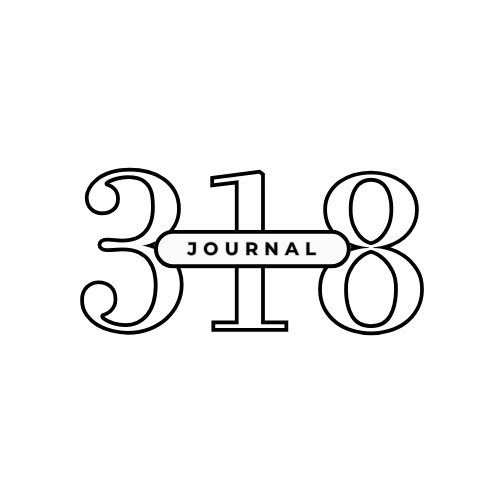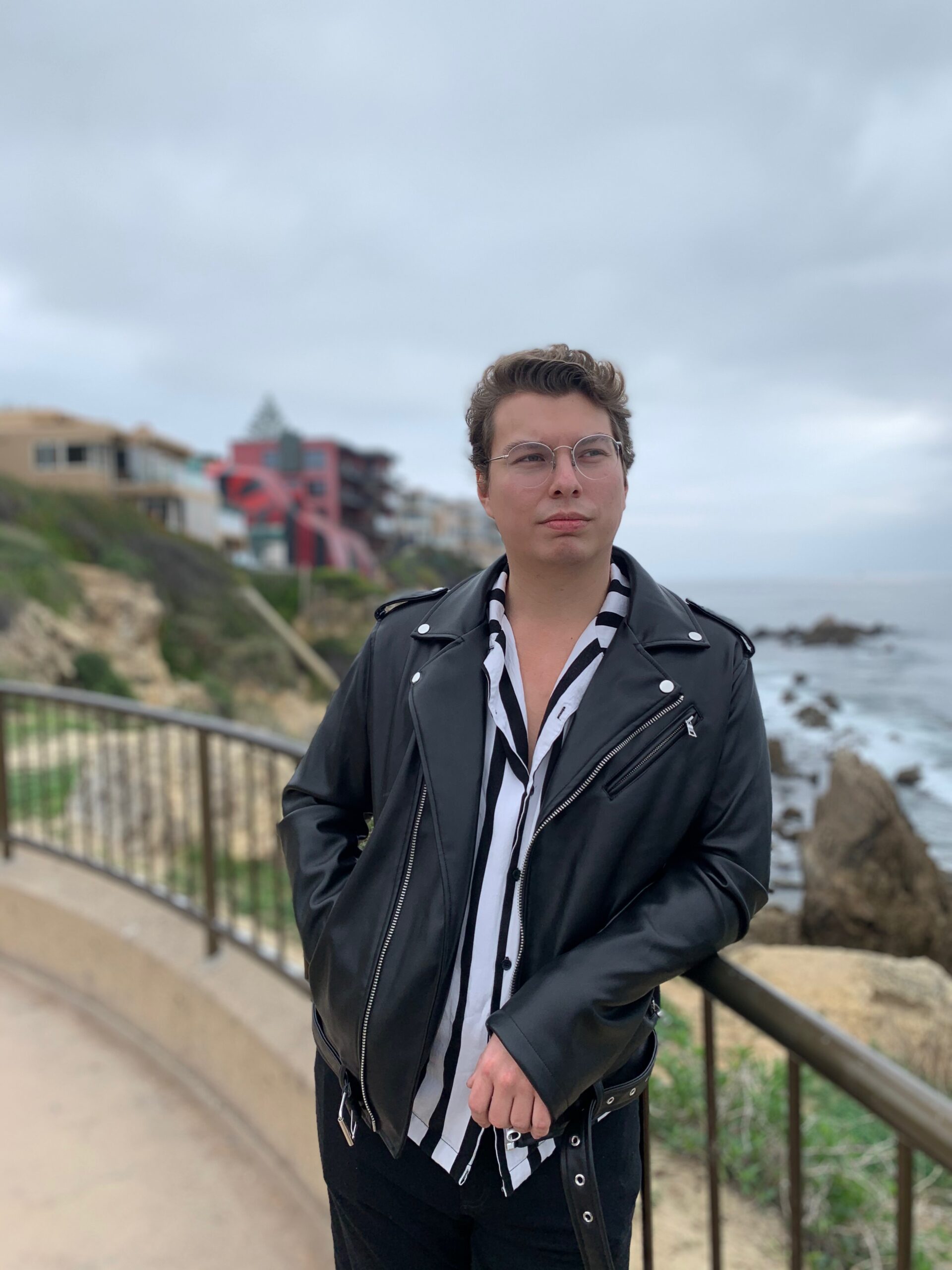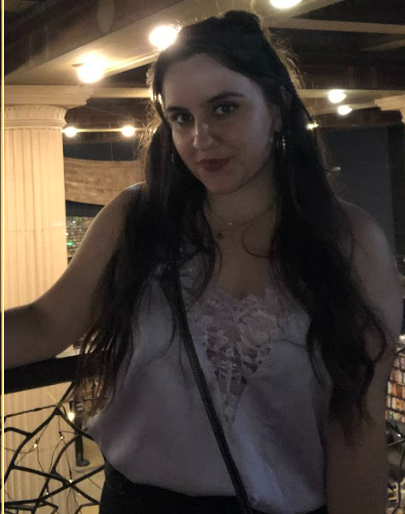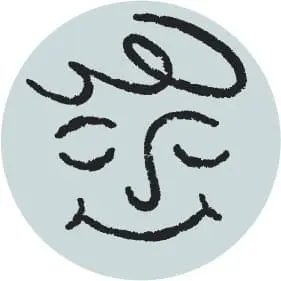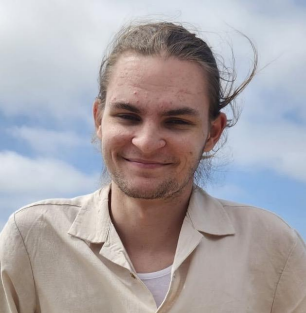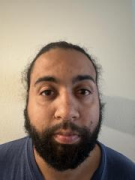By Samuel McRae
Only idiots want to be infamous. So no, Karime wasn’t taking the video well. At best this would be a flash in the pan. At worst…
“A heated confrontation in Cliff Heights, California, has taken the internet by storm. A now-deleted clip on TikTok shows an area woman issuing violent threats at local youth.”
Fatigue stung at Karime’s eyes, that or the excess screen time. Few of these articles passed for journalism, and it shouldn’t have surprised her the news pushed tabloid garbage. It still stung. And now came the worst of it, that damn video.
“Touch her again and I’ll break your f***ing wrist!”
“We were feeding it!”
“Crazy b****!”
“You need to leave, now. You’re lucky she didn’t bite you! Maybe you’d learn some common sense!
Karime stood by that. Maybe she should have watched her language. An image popped into her head, reality tv fans drawn to the censor bleeps like dogs to a bell. How did people care about this?
“We just wanted to feed it.”
That little punk’s side of the story. His speech punctuated by sniffles begging the audience to feel bad.
“That’s all we wanted! But this lady comes out of nowhere threatening my friends. We didn’t know if she was gonna hurt us!”
“To threaten a child like this?” the mother of this seventeen-year-old boy scoffed. “That’s unbelievable. She’s lucky she didn’t lay a finger on him, otherwise I would have her in jail.”
That bitch. Encroaching on a coyote den-during the pupping season mind you- could hurt more than their poor little egos. They were tossing sandwich traps to get as close as they could. What kind of game was that? Coyotes are survivors in the face of habitat loss, and people can’t stand it. If the coyote (within her rights to do so) snapped at these kids, they’d run back to the hovels of suburbia. Their parents and neighbors would take up arms to punish an animal for being an animal.
Last year Karime’s worthless nephew set snare traps across his property, protecting his yard from animals he didn’t own. Including the neighbor’s cat, who should have been kept indoors anyway. Instant legal shitshow. He asked for help with his legal fees.
“Those fees are your tuition for the school of consequences.”
“What? What the hell are you talking about?”
She hung up and cut him off. She hung up a lot these days. Too many people thought her life was their business, strangers even.
A knock on her desk.
“Let’s remember to keep our work time productive. Normally you’re better about this.”
Her boss. Karime straightened her posture and closed the news tab, opening a spreadsheet.
“Sorry, Dan. Just worried about recent events. I want to know what clients might think before I work with them.”
“This,” Dan gestured vaguely, “stuff will only interfere if you let it. Just keep your best face forward.”
Her career in a nutshell.
PR work paid her bills, a long drawn out investment returning on Karime’s effort. Her true passion? The Alderman Wildlife Center. Animal rehabilitation supported by the California Department of Fish and Wildlife, one of the reasons Karime paid her taxes.
As soon as she stepped out of her office, investor relations turned to bullshit. This was real work. Putting Melvin in a holding cage, cleaning the shit out of his kennel. They needed to feed that raccoon less. Gross. Ultimately manageable. Toughing out the stench and texture was a matter of mental fortitude.
Melvin was an orphaned tick magnet, and he hated being handled. Good! His fighting spirit would help him survive in the wild. He just needed time to recover. And a clean kennel was a step in the process.
“Thanks for helping out. I know reptiles are more your forte.”
Paulo’s deep voice held the cadence of a mall dwelling valley girl, with the knowing lilt of relaxation born of expertise.
“It’s just what needs to be done,” Karime replied curtly. “How’s Cheeto?”
A Western painted turtle. Native to North America, not native to California. But that wasn’t really her fault. Some shortsighted suburbanite left her at the shelter with a sticky note on her shell.
This is Cheeto. We can’t take care of her anymore. Please give her a new home!
Cheeto was only eight inches long. Did they think she’d get bigger? Paulo had the decency to give her a home. Karime’s furrowed brow dissolved to a neutral, inquisitive look.
“How’s her eating?”
“Good. She’s, like, really into live prey. Such a little snail hunter.”
The corners of Karime’s mouth lifted. “She deserves a home like yours.”
“Of course. By the way, Kelly’s graduation party is on the 26th.”
Kelly was another volunteer. Punctual. Talked about sea creatures for hours on end. Good on her for graduating.
“She’s a good kid. I’ll get her a tank filter for the snails.”
If you ever made eye contact with Kelly, she’d probably show you pictures of her rabbit snails. Creepy orange tissue protruding from a long black shell. Exactly why Tetrapods were more Karime’s speed. But still, Kelly kept the snails’ habitat so precise in pH and salinity it would make a surgeon blush. To care that much about snails of all things… maybe the next generation wasn’t as fucked as Karime thought. Maybe.
After a night of restless sleep, one shower, and thirty one brushed teeth, Karime chopped tomatoes, cilantro, green onions, and leftover chicken. She cooked them into an eight egg omelet divvied into two equal portions. Two plates of morning goodness drizzled in a storebought salsa brand Karime fell in love with in college. One for her, one for her wife: Professor Anna Channita, tucking a button up into her pants as she walked to the table. Karime was relatively butch, but that was a lack of interest in the trappings of femininity. Meanwhile Anna’s vision of heaven held suits, ties, and slacks tailored to her lean, top heavy figure.
“Morning, darling. How’d you sleep?”
“Poorly.” Karime sat down. “Eat.”
Anna gave her a knowing look. “You’ve been keeping your head down. You would have told me by now if anyone gave you shit.”
Karime shrugged. “You know me well.”
“It will blow over,” Anna promised. “Give it time.”
Karime sighed and dabbed a napkin at her chin. “If you say so.”
A flash of concern colored Anna’s face. “Right. Well, I have more papers to grade if you need a distraction. Matty wrote something about the impact of boy bands on masculinity.”
“I thought you taught Political Science.”
“And yet…”
Anna chuckled. “Anyway, some people are so tied up in their own baggage they make everything about themselves. No wonder people project their strict teachers and mommy issues onto you.”
Karime made a face. “Their what?”
Anna shoveled the rest of her meal into her mouth. “Just a theory Nico shared in office hours.”
“I… appreciate his concern, but I’d rather he stuck to World War 1 facts.” Karime rubbed the bridge of her nose. “How the hell do I know who you’re talking about? I know your students’ names better than you do.”
“Because you are a genius.” Anna stood and gave her a kiss, savory from breakfast. “Have a good day at work. Try not to kill Dan, but if you must, have it look like an accident.”
If the business park had a saving grace, it was the view. K&S Business Communications straddled the threshold of urban sprawl to forested hills. According to Dan, it was good for the valuable mental health of K&S’s em-partner-ployees. In fairness, the hiking was good. Karime spotted a bushy tail on the way out of her car. It disappeared between the trees. Like a wink, or an inside joke offered by the fauna.
Karime let out a breath and stepped into the office. It greeted her with blasted air conditioning she’d never get used to. She stifled a shiver and entered the elevator, maintaining a professional composure in the presence of a coworker. Gina. When Karime failed to tune out gossip, some people whispered that Gina used to be an actress. This might explain her incessant need to participate in office politics torn from the screenplay of a spy movie.
“Hi,” Gina said with the rehearsed pleasantry of someone who needed something.
“Hello,” responded Karime with the formality of someone with somewhere to be. Not enough to feign interest, but enough politeness not to hear back from HR.
Gina batted her eyes innocently. “I saw the news this morning.”
Karime felt a lump in her chest rising up her trachea. She had plenty to say on the topic. Plenty that she would rather keep to herself.
“Some kids were harassing a coyote, possibly with pups, and I drove them away without laying a hand on anyone.”
Gina pursed her lips. “I see. Well, hopefully they don’t press charges. My cousin’s a lawyer, I could totally get his help.”
“That’s great, Gina.”
The elevator dinged, doors opening and desks beckoning. But someone stood in the way.
“Hi, Dan!” Gina fluttered over to her seat and out of the way.
Dan waved like she was an aunt he didn’t recognize before turning to Karime.
“We have a training for you in the break room.”
Odd. Karime was up to date on all her trainings, none of which ever took place in the break room. “What’s it about?”
“Er… asset protection.”
Okay, Dan was definitely lying.
“This isn’t a casino, Dan. Did anyone else get ‘asset protection training?’”
Dan’s mouth twitched. Employees were staring, as if he didn’t already regret the switch to open concept. Cubicles kept eyes on computers, not on delicate situations.
“In light of recent events, the company has decided to terminate your employment.”
No veneer of approachability, just a robotic script in the interests of K&S. Dan looked like he was defusing a bomb, and Karime nearly laughed. Oh, he was fucking scared? He’d love if she flew off the handle, just think of all the unearned PTO. No, Karime simmered her rage, guiding it under the surface.
“Has my work performance declined? If so, why didn’t you reach out?”
“This is the company’s decision. Not mine. I’m sorry to see you go.”
Karime tried to still her hands. Her heart beat louder than Dan’s words, her firm posture hunching like her spine was trying to eat her sternum, her dry mouth swallowing her turning stomach. She didn’t even like this fucking job, but she wasn’t bad at it!
She needed to leave. Immediately. No one needed to see her revert to a dumb kid from decades ago. The elevator dinged, she was on her way out. Acid churned at the back of her throat, and before the door opened, she doubled over for release.
Three days since the firing, she was ready to talk.
That sober evening, Anna cradled her wife’s back on the couch and wrapped an arm around her. Both of them breathed in warmth and comfort, easing them out of a lull of commiseration.
“Retirement by force. This is life now.”
Anna rubbed the stiff left shoulder. Commiseration without agreement.
“I didn’t say anything about the incident and they still fired me.”
“I know. I’m sorry.”
Anna was a rare type, the kind who always knew her purpose. Even rarer, it earned her a decent wage. She’d better, it took years of scrounging money across three degrees. Petsitting while editing other people’s papers, countless nights of mentally repeating notes while stocking boxes and milling about on security. Even substitute teaching, a forward-echo while she cased out universities. Without Karime’s guidance, Anna would have gone crazy.
And so, Anna probed. “Would you trade your time at K&S for something different?”
Without missing a beat: “A company that entitles me to my pension.”
Actually, K&S left her pension alone. Maybe as a show of good faith, maybe to mitigate a liability, whatever. That wasn’t the point. Anna licked her lips.
“Let me rephrase. Say you followed your herpetology dreams, what might that path look like?”
Karime’s brow tensed.
“I would work as a wildlife care specialist at a zoo. AZA accredited only.”
Anna thought so. Karime was the same woman she first met, precise dreams etched into her hard head. Anna was getting her Master’s while Karime fought for a Bachelor of Science. In the end, she switched over to a more lucrative major in business. Anna knew she hadn’t let this go.
“Very specific. And this zoo job would require…”
“Residency.” Karime smiled dryly. “Internships too. Humans don’t dole out money for the benefit of other species.”
“Charity-”
Karime sighed, softly and nasally. Anna dropped it, but she kept talking.
“You know what you’re good at? Decisive action. Decisive words. You don’t compete without a goal, even if you put it there yourself. And you play to win, you wouldn’t be happy floundering around grasping for your dream.”
Karime drew in a breath, expanding her chest, drawing it into her stomach. She let it out, all her tension leaving.
“How long did it take me to finish Cross Justice?”
The book? Anna didn’t see where this was going. “About two months.”
“How long did it take me to read Hope to Die?”
“The same.”
Karime nestled her head into Anna, neck leaned back as if assisted by horizontal gravity. “I read to punctuate the day. When I settle into bed, when I put on my glasses, I’m done for the day.”
“You relinquish your momentum to the inertia of rest.”
Despite herself, Karime chuckled. Her cheeks bunched up when she smiled.
“You understand. When I stop for the day, I lose all my steam. Why’s life any different?”
Anna ran a hand through her wife’s hair.
“Because your ‘forced retirement’ is bullshit. You are not letting the mortgage catch up to our savings. I live here too, sunbeam.”
Both women closed their eyes. A few seconds passed. Then they sighed in unison. This seldom happened.
“Branch out,” suggested Anna. “Keep your momentum without overextending. But we’ve made too good of a life together to end up victims.”
The Alderman Wildlife Center smelled the same as always. Part hospital, part stable. Waiting by the front desk were Paulo, glancing over in concern, and Kelly, holding something. Kelly was a short, chubby, olive skinned girl in a fresh set of gym clothes. She kept her black hair dyed blonde, then dyed it blue. Karime didn’t get it, but it didn’t look bad.
“I was on my way out,” she said in lieu of a greeting. “But I wanted you to have this.”
She held out a book. The Ends of the World.
“It’s about mass extinctions. Hope you like it.”
Karime blinked. “Thanks.”
“Don’t mention it. It helped me put some stuff in perspective. I hope it helps you out.”
Kelly waved on her way out. “Gotta go. Nice to see you, Mrs. Cardoso!”
“Goodbye, Kelly.”
Karime tried to think of the last time someone used her surname. The doctor? It felt good to be respected.
Paulo cleared his throat. “Sorry if that was abrupt. Kelly’s a little awkward.”
“She’s fine. How’s Melvin?”
“Loving the clean cage.”
Paulo pursed his lips and pondered for a second. How to say this lightly.
“I wanted to ask you something before you help out for the day. Don’t worry, you’ll get a chance.”
A chill through Karime’s chest.
He continued. “I don’t need to hear about the incident. I trust you were acting within your judgment. What I want to know is simple.”
He folded his hands. “Did you know where the den was? Before the kids did, I mean.”
Karime took a breath. In, out. Chest out, chest in. This was Paulo. She could trust him.
“I used to hike a certain trail.” By the K&S building. “I’d walk, and walk, and walk. Eventually, I stopped seeing other hikers. I’d hear the coyotes. I followed their tracks. They used a crack in the rock for their den.”
Karime closed her eyes. The taut muscles of her forehead loosened like a line given slack.
“There were four of them. One mom, three pups. They never approached me, to be clear. I never approached them. But we’d see each other. I think they understood I wanted to keep my distance. I only wanted to watch them.”
A rough swallow. The ice in her chest cracked.
“The pups are gone. I hope they left, that they got to grow up. But I worry. Did all three of them really leave at the same time? Did something happen to them?”
A deep exhale, taking in the melted sensation between her lungs. It was warm. The weight of stress flowed through extremities, spiraling through the air.
Paulo unclasped his hands. “You are one of a kind.”
Karime dabbed at her eyes with a thumb. “Thank you, Paulo.”
“No, thank you. It’s been, what, two years? I’ve wanted to ask this for a while. The center needs some new Care Associates and-”
“Yes!”
The word came out of her mouth before she could process it. Her most raw desire ringing clear without a chance of restraint.
“Yes,” she smiled. “Yes.”
Author Bio
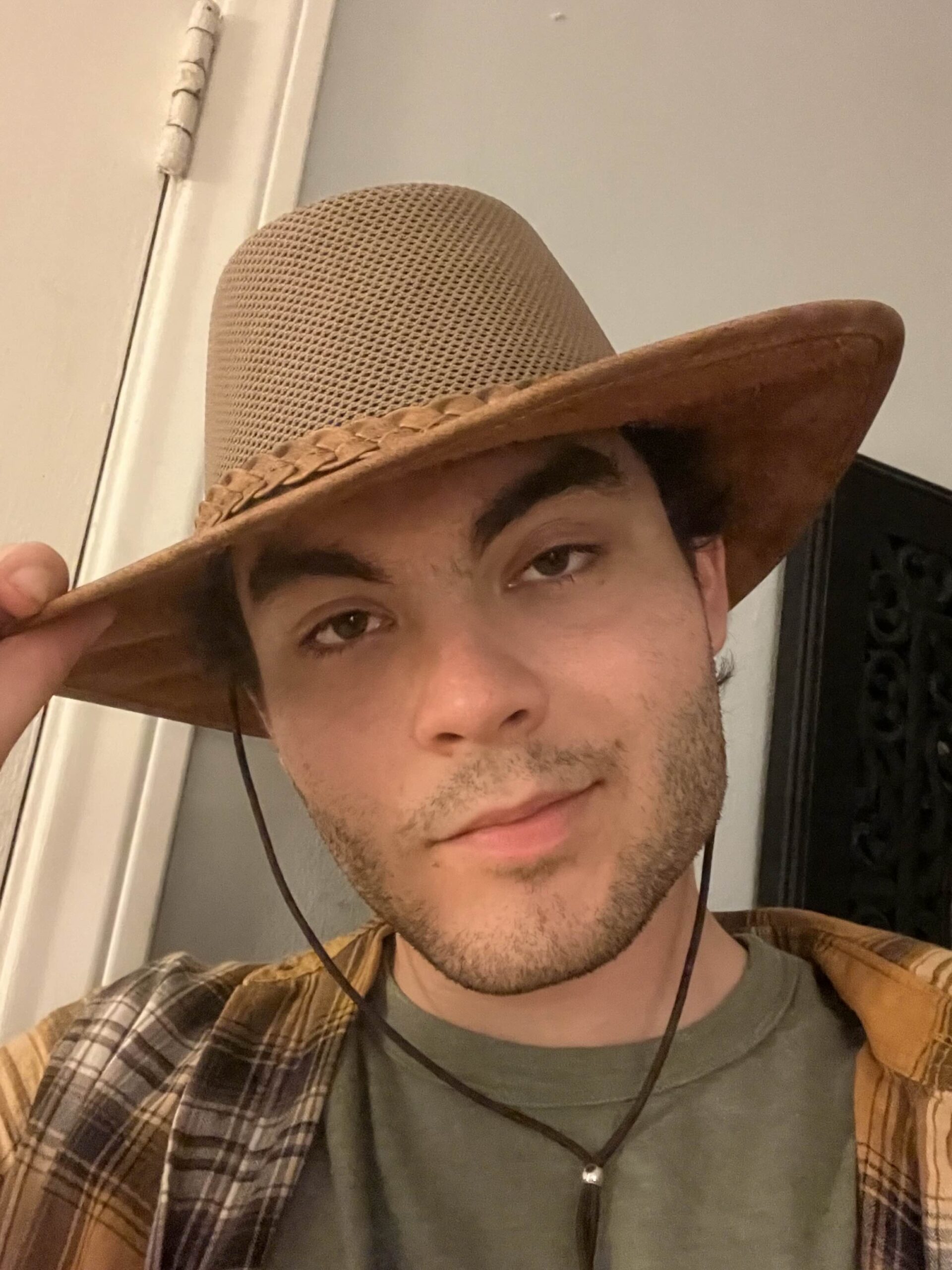
Samuel McRae
Samuel McRae writes ecologically tinted character-based stories. Based in San Diego, he admires the beauty and strength of bighorn sheep, velvet worms, owls, comb jellies, and thorny dragons. On a good day he can be found sketching, hiking, or jumping up stairs.
